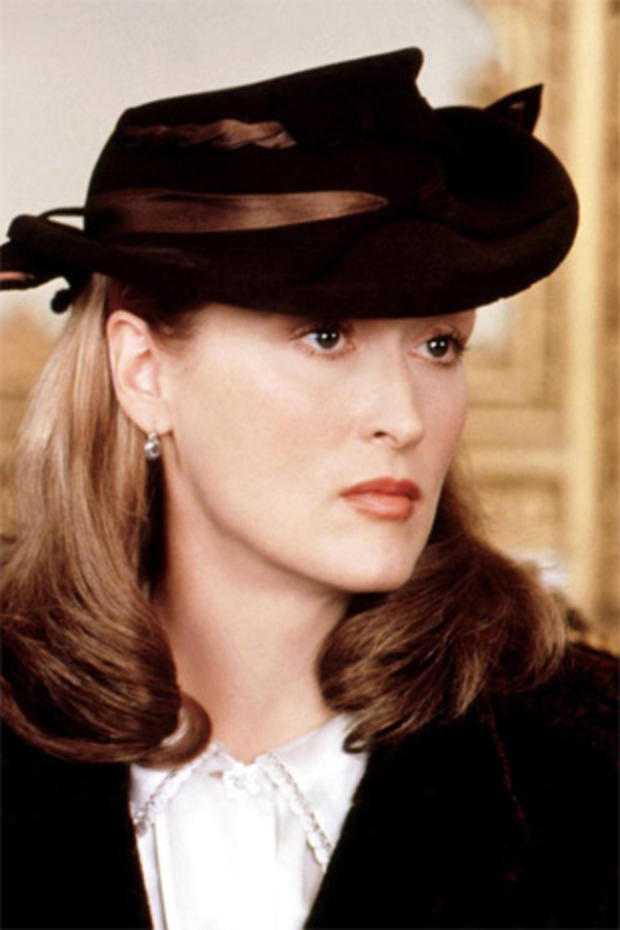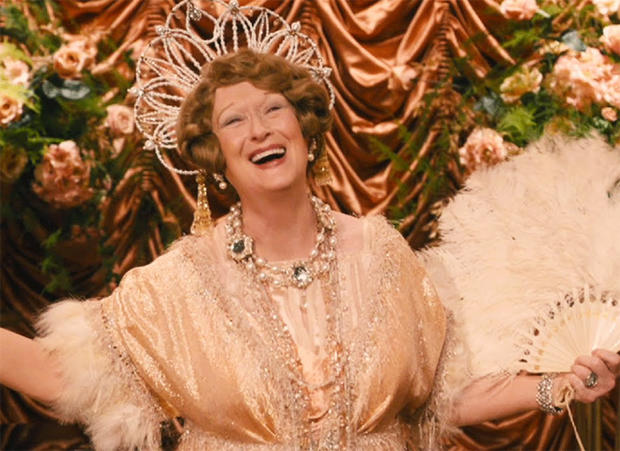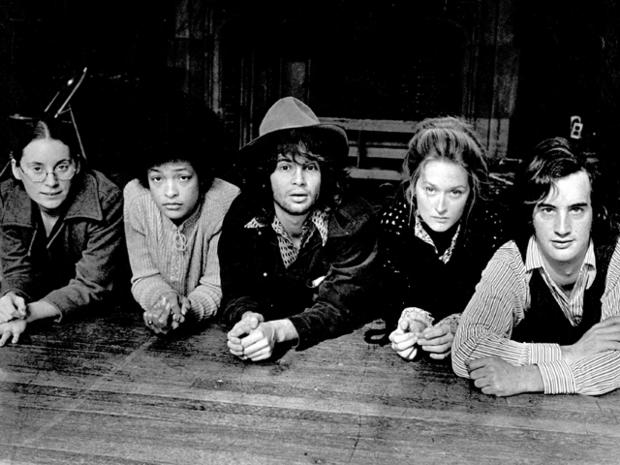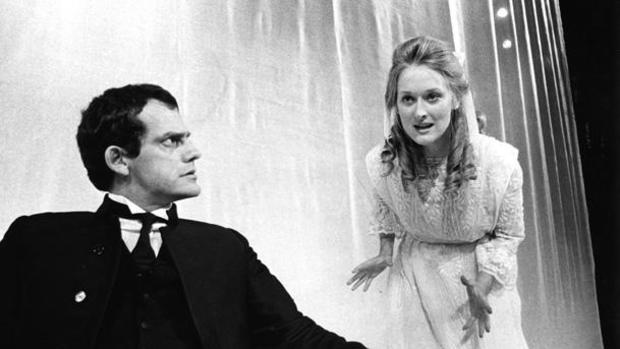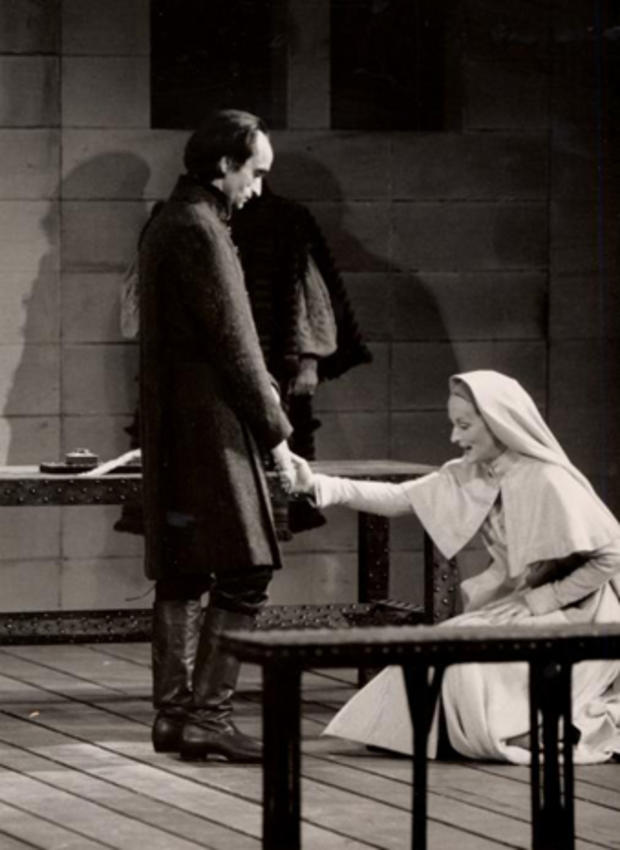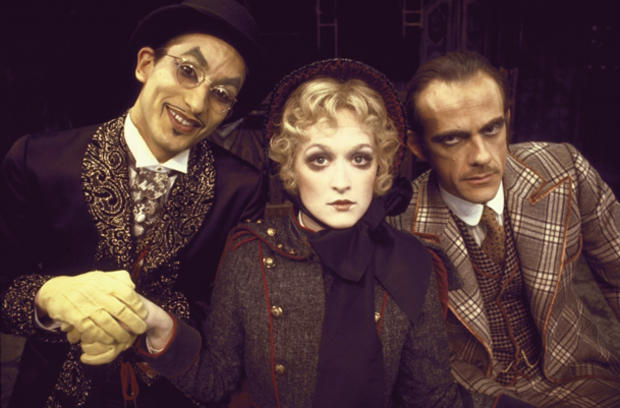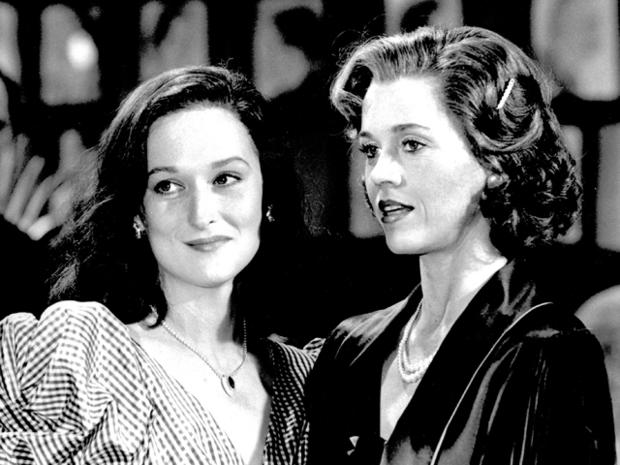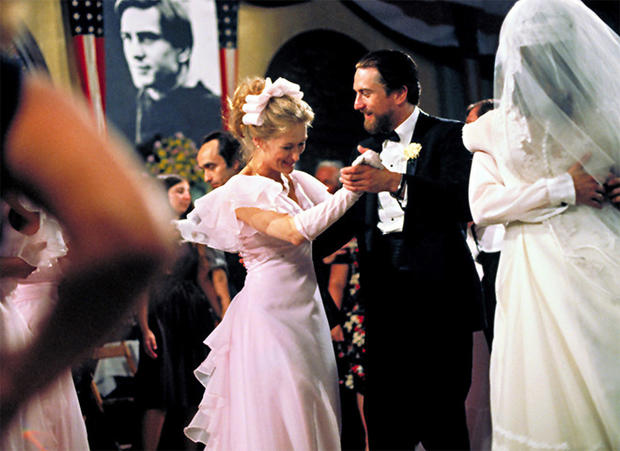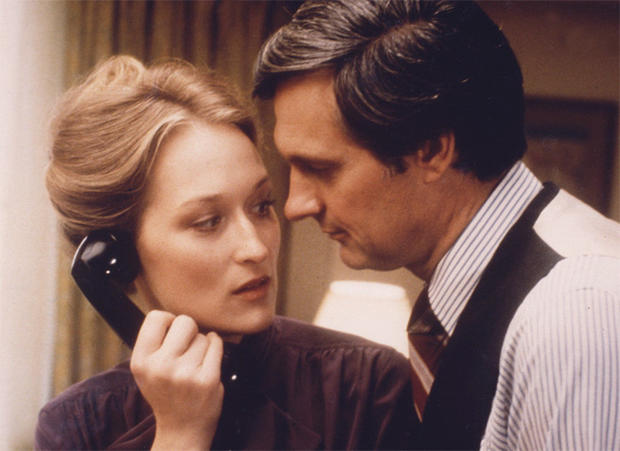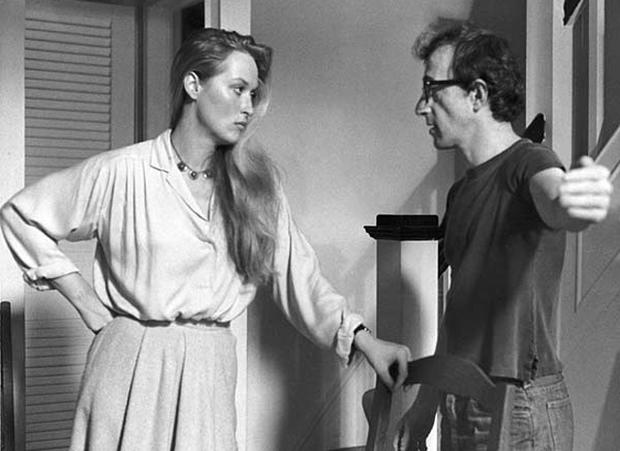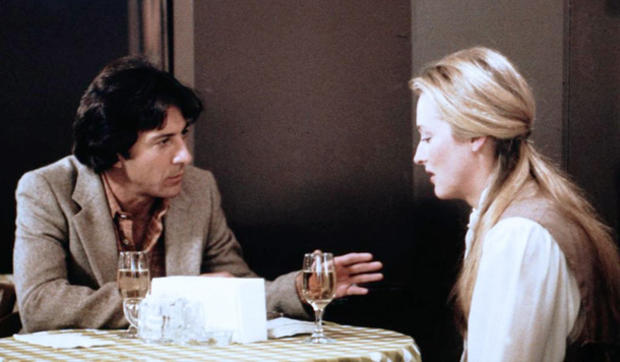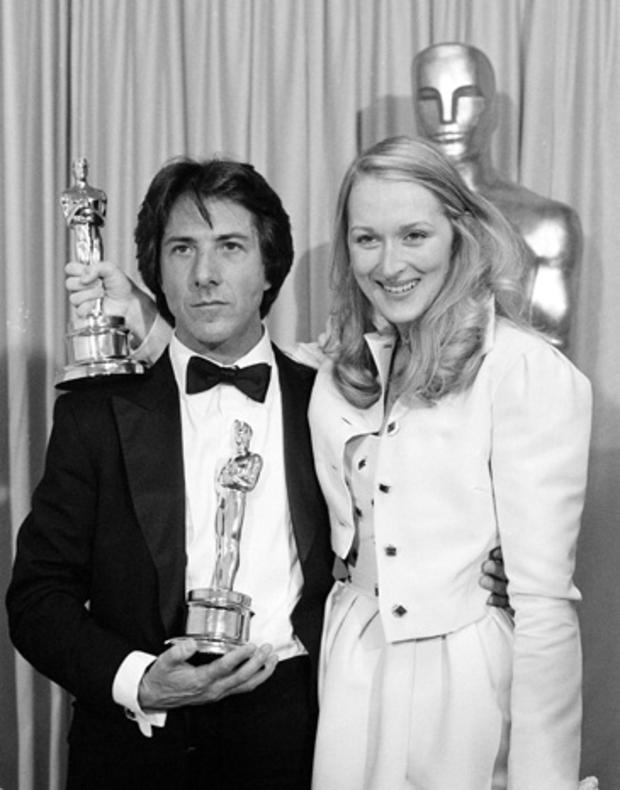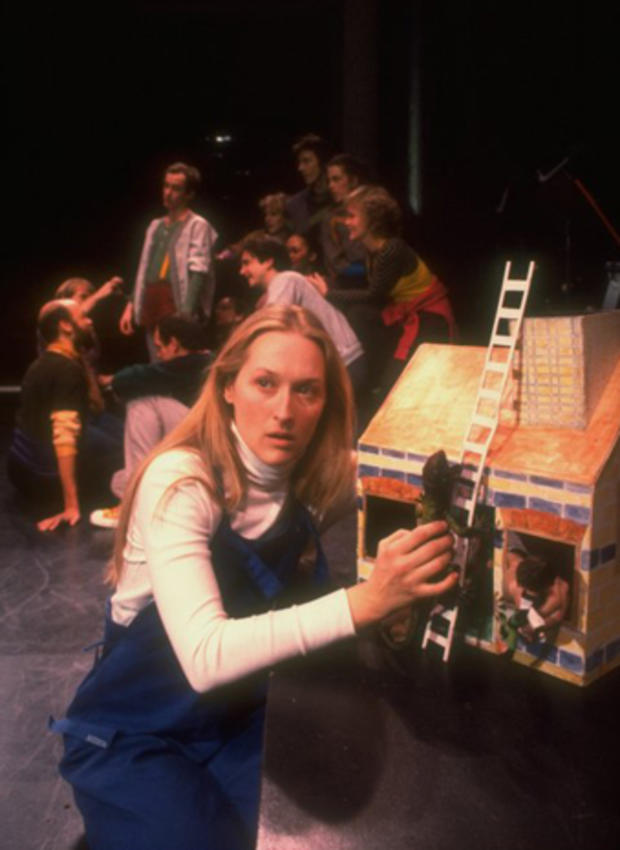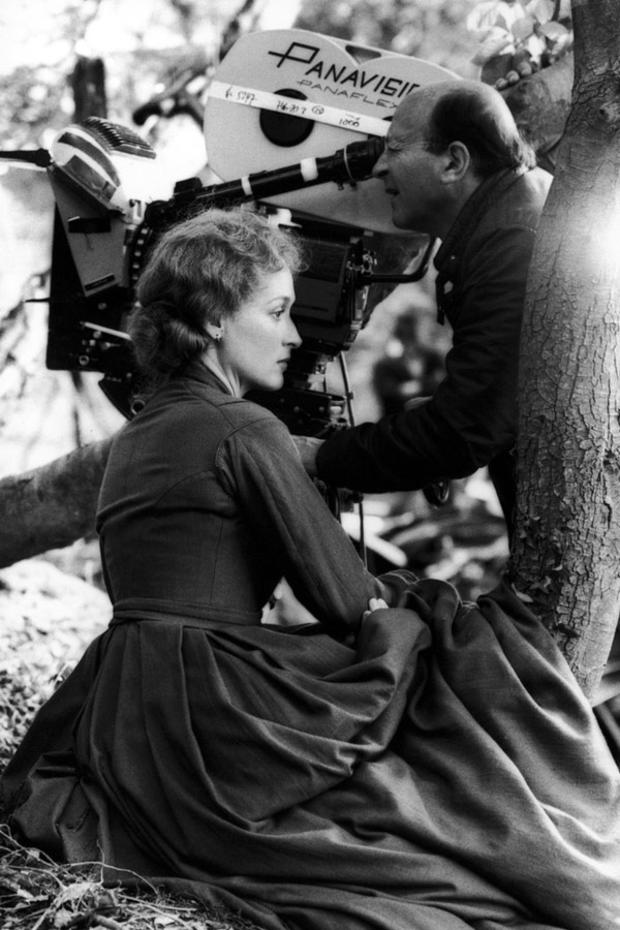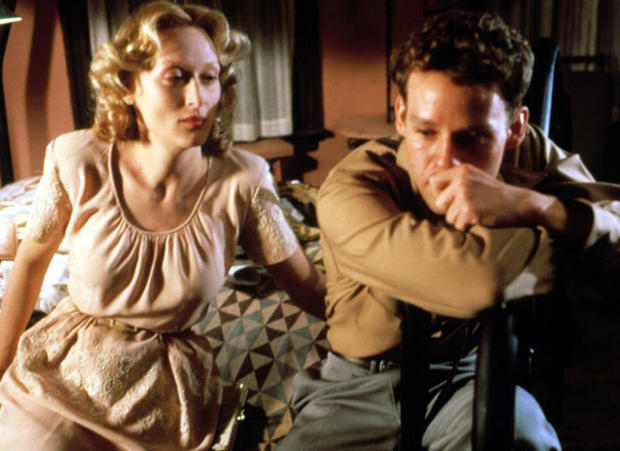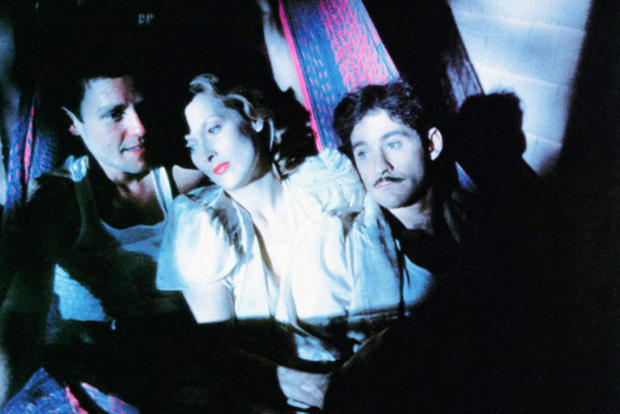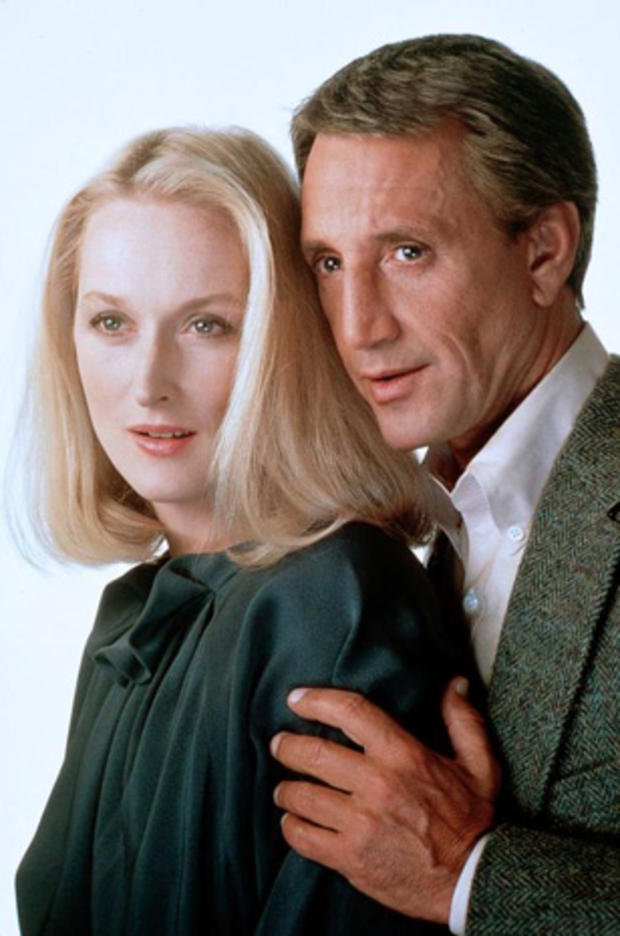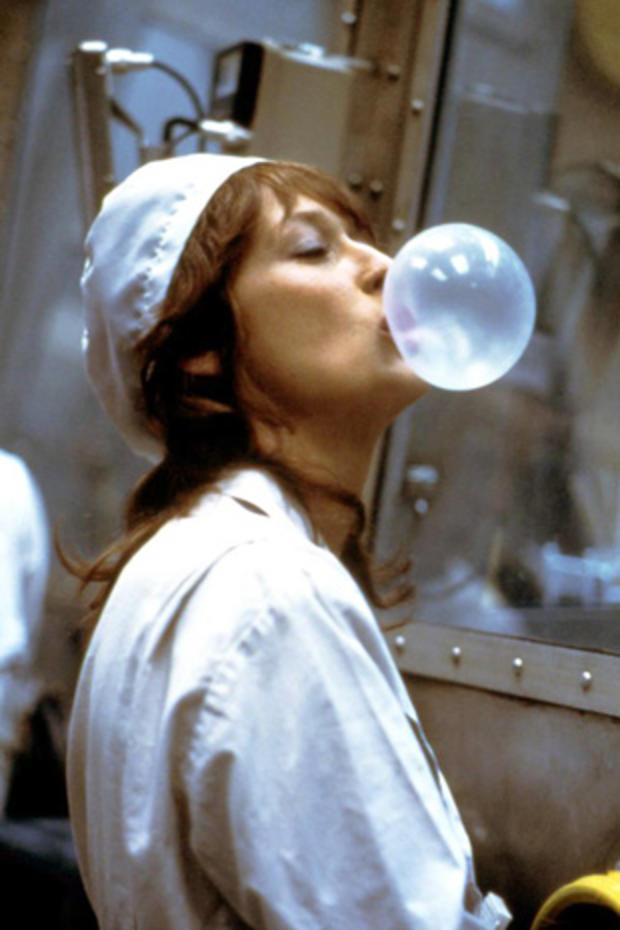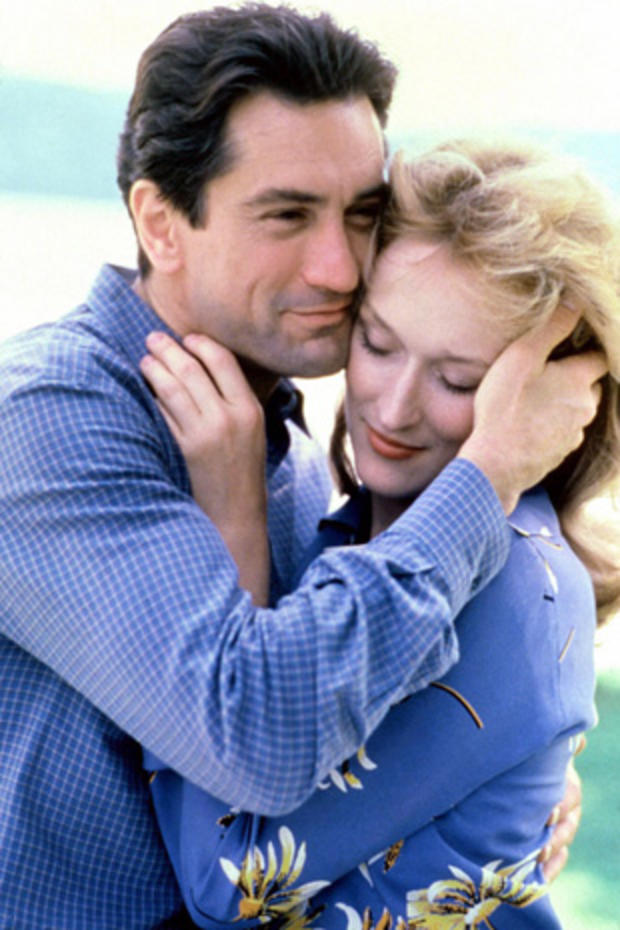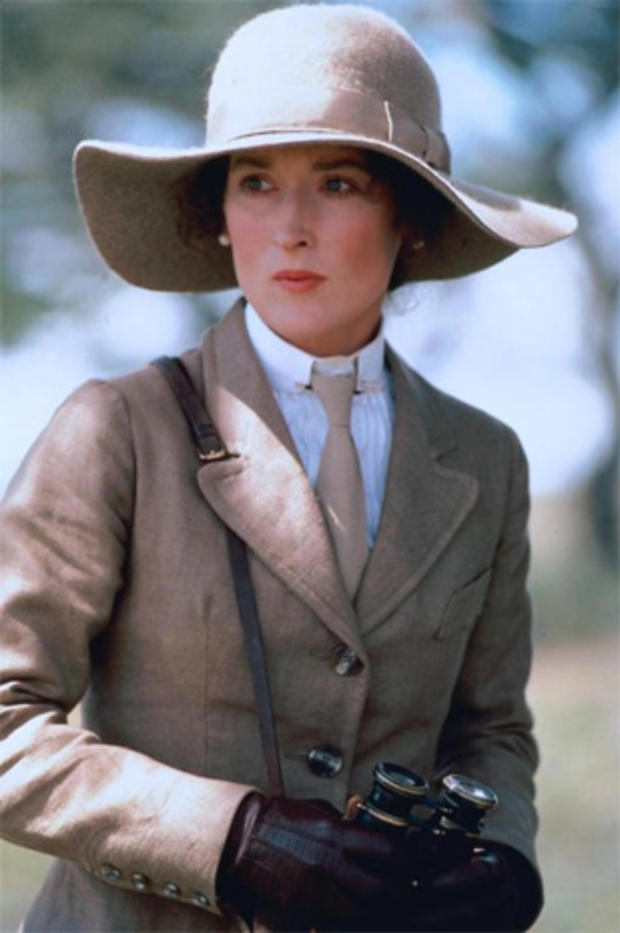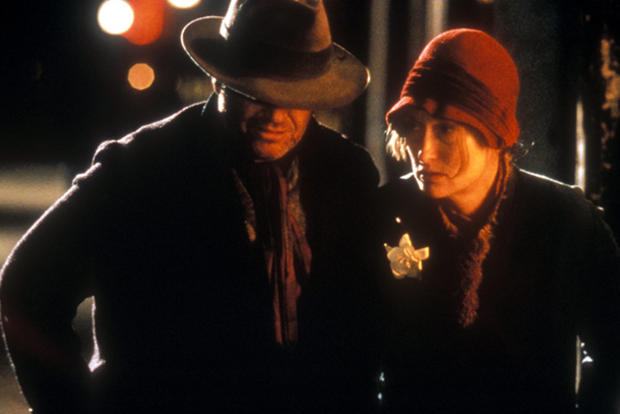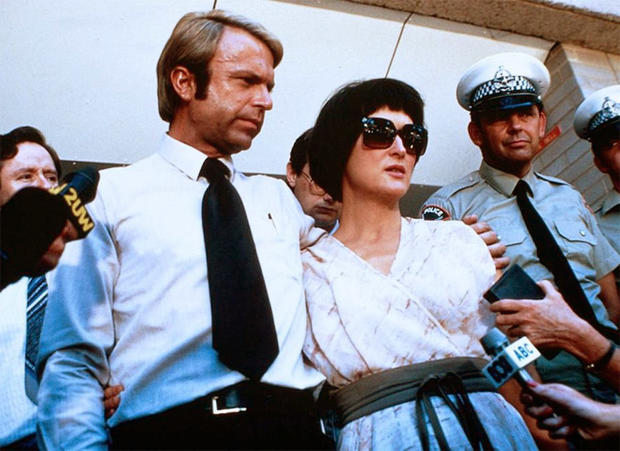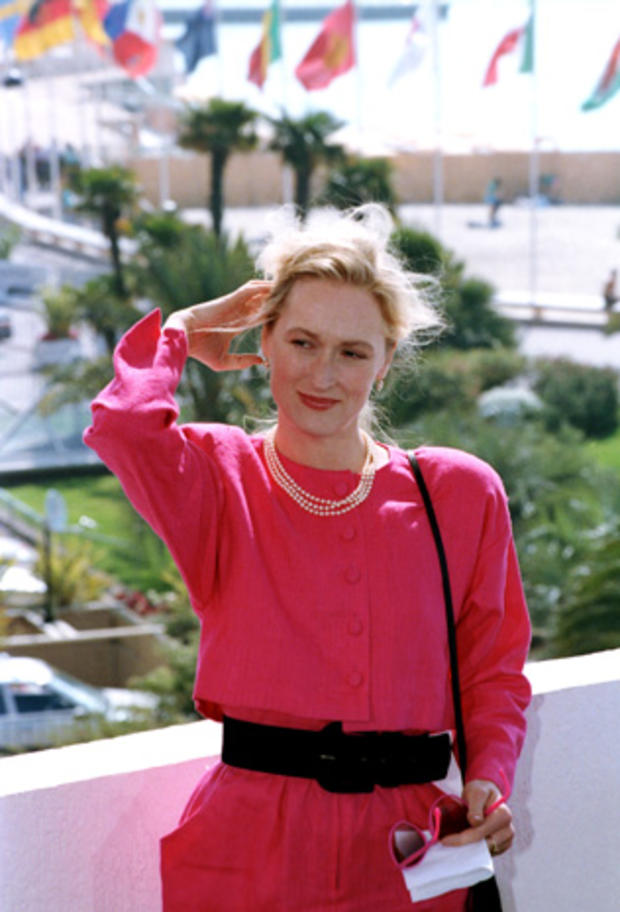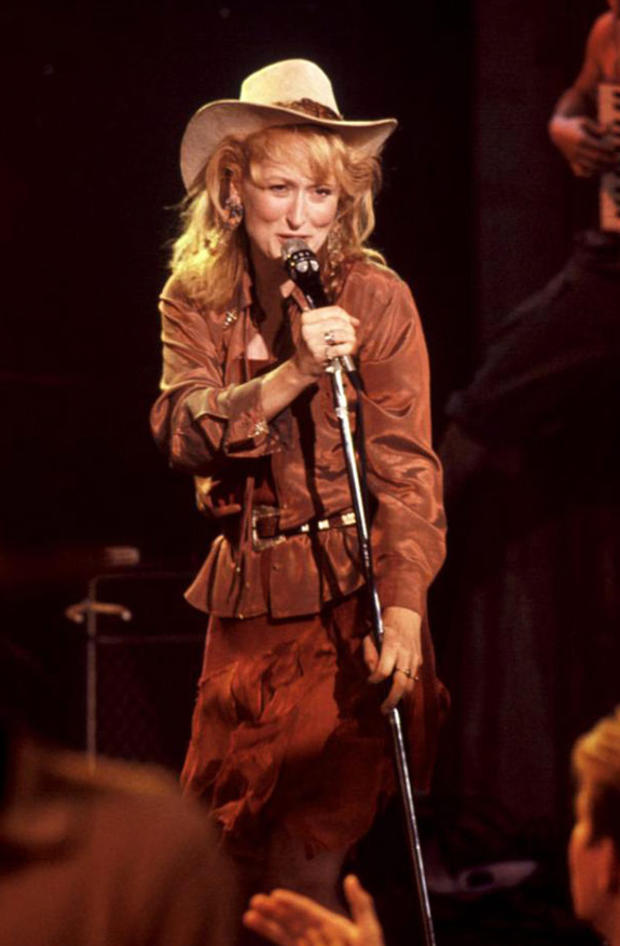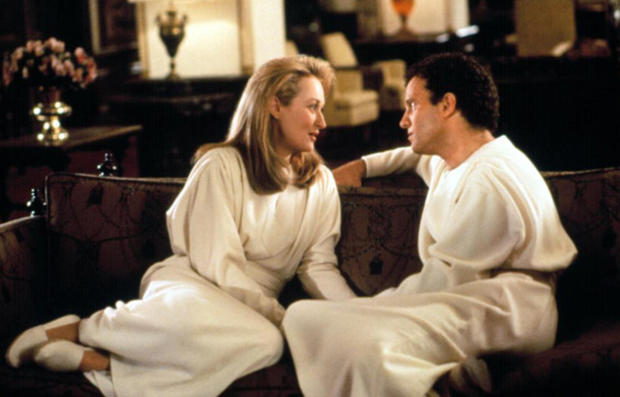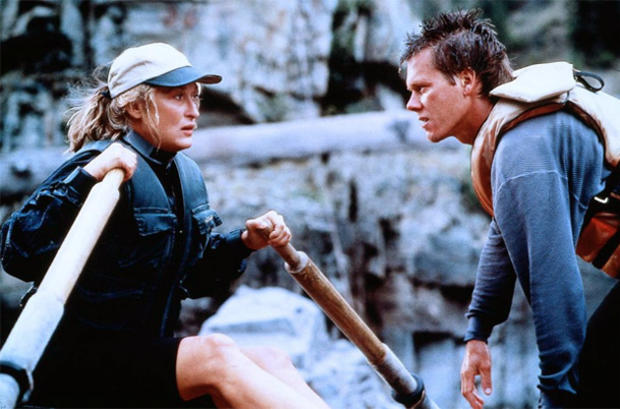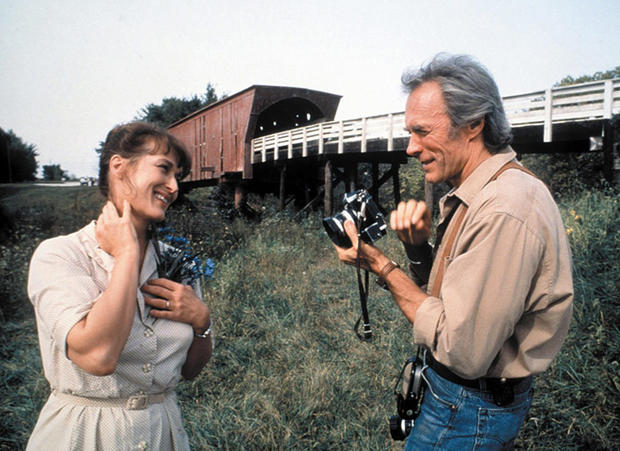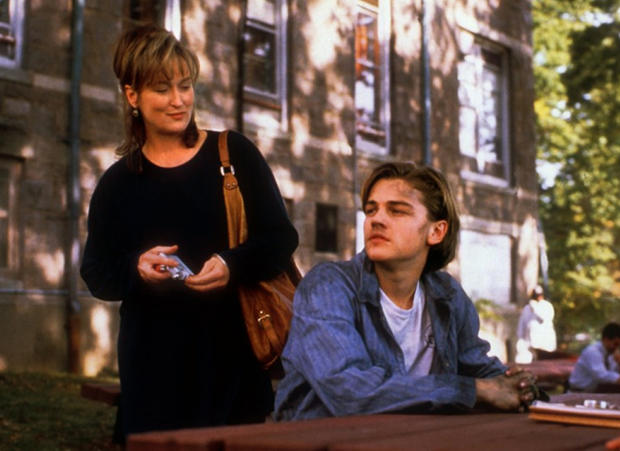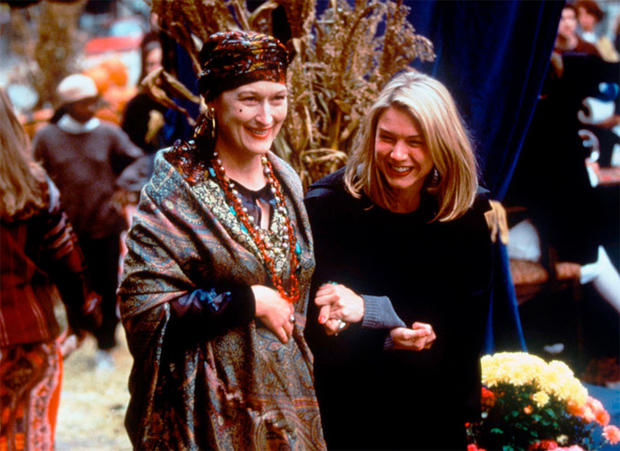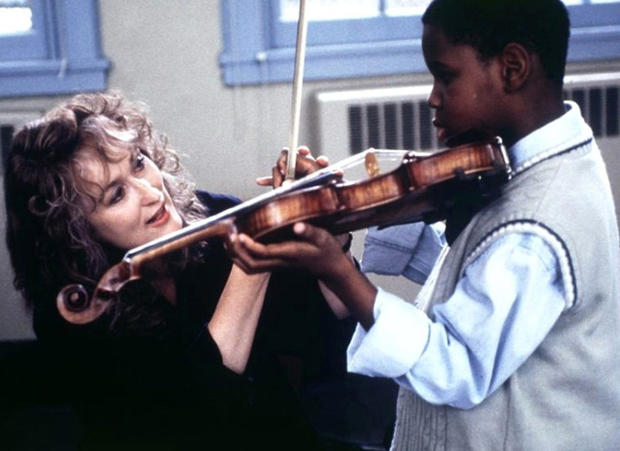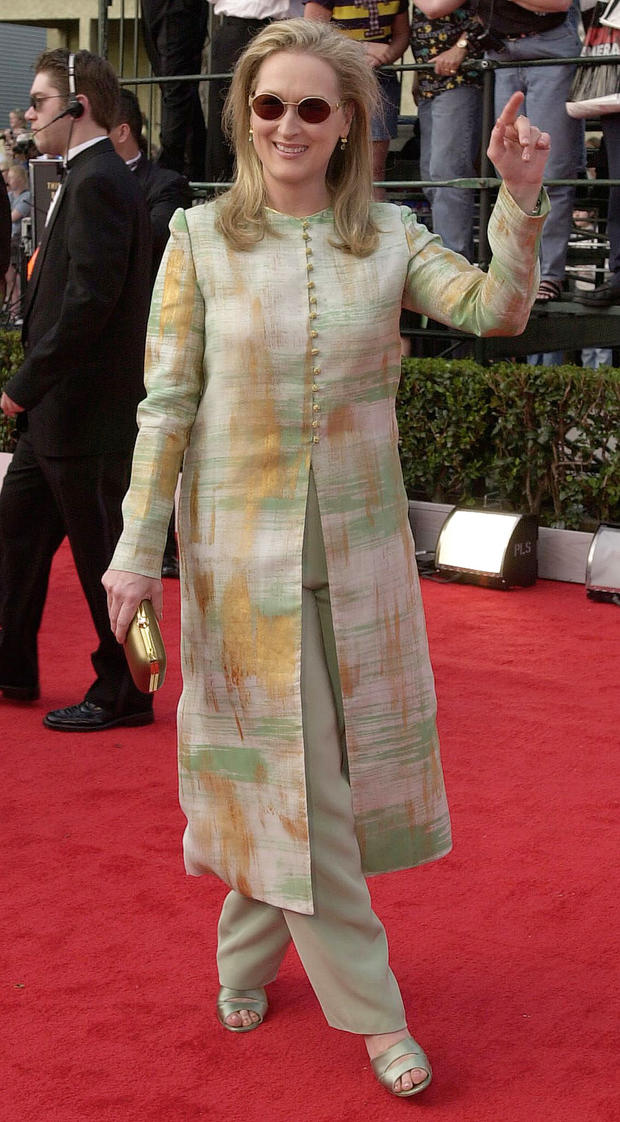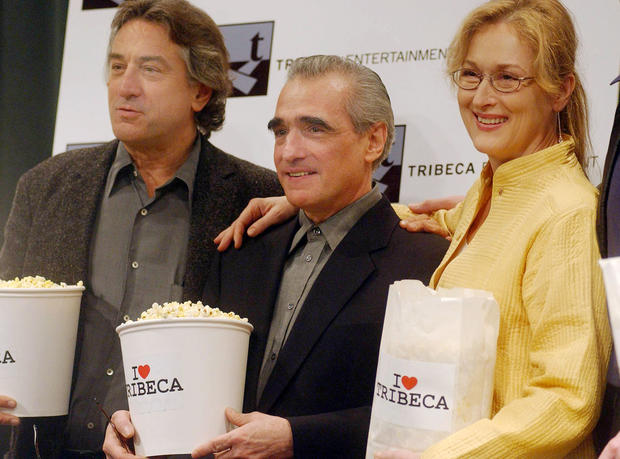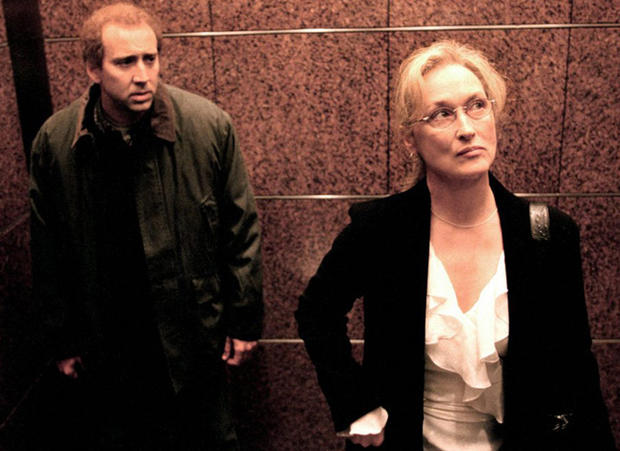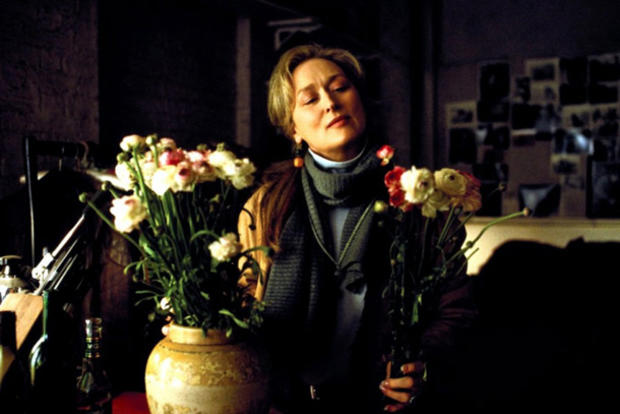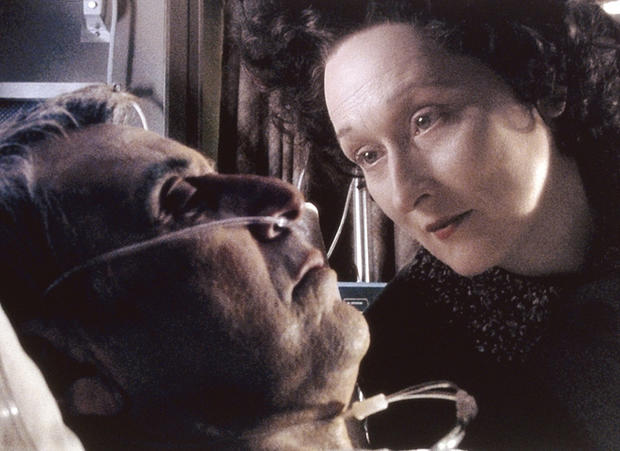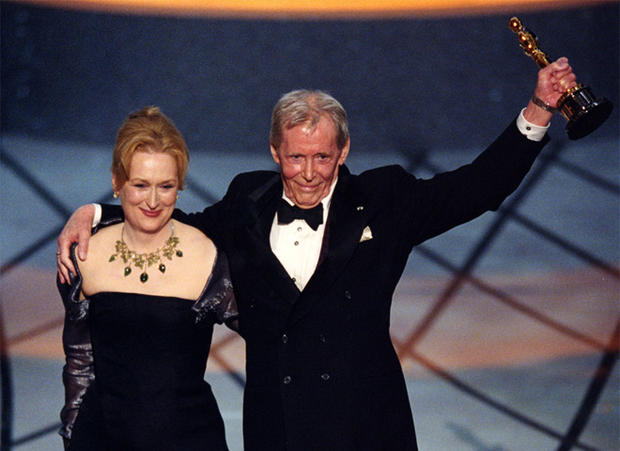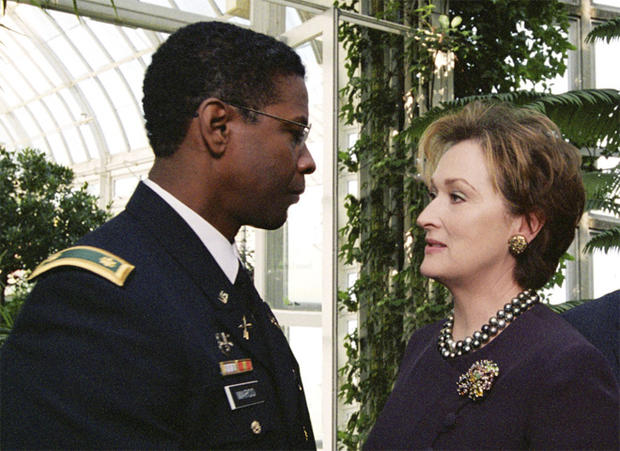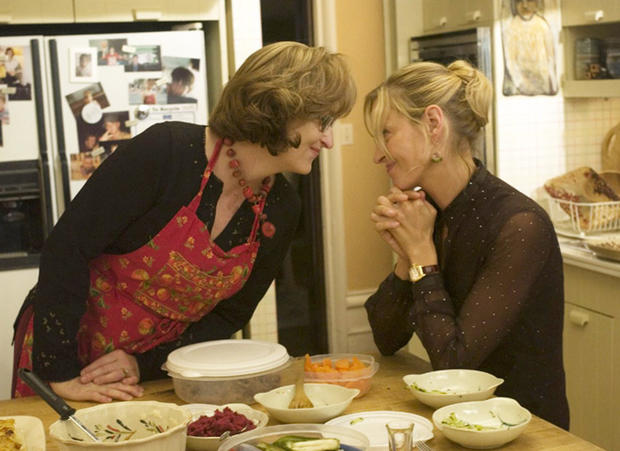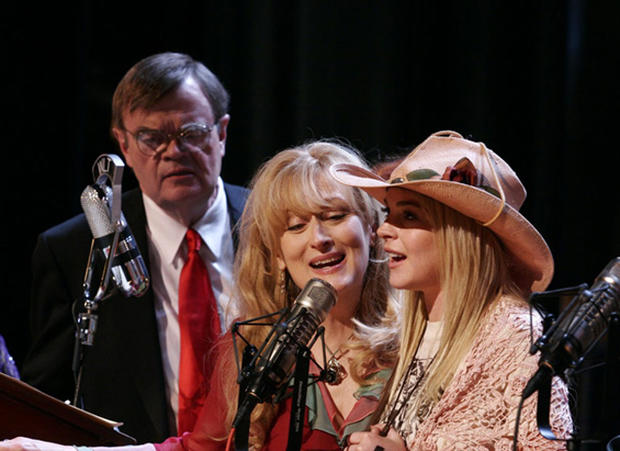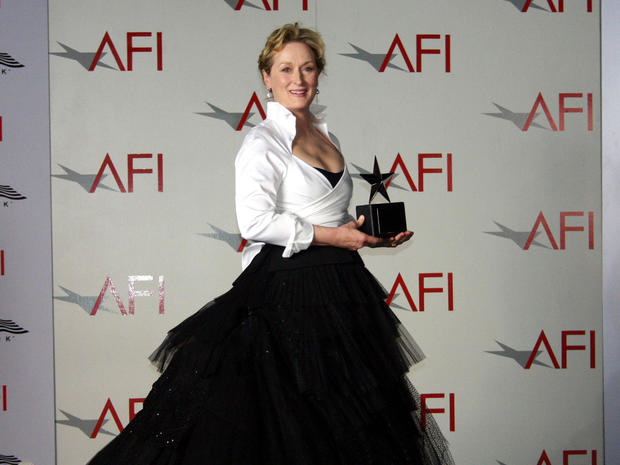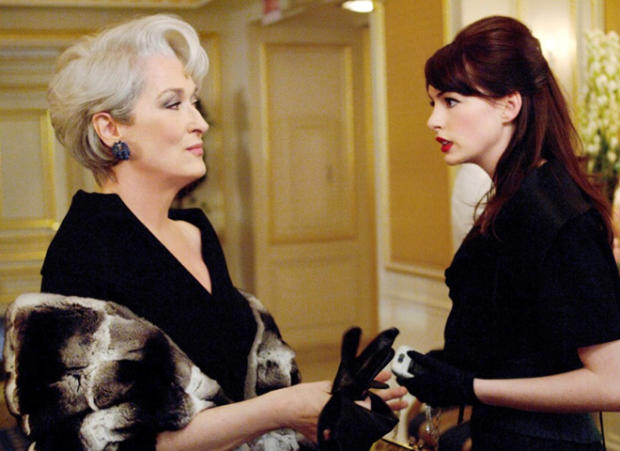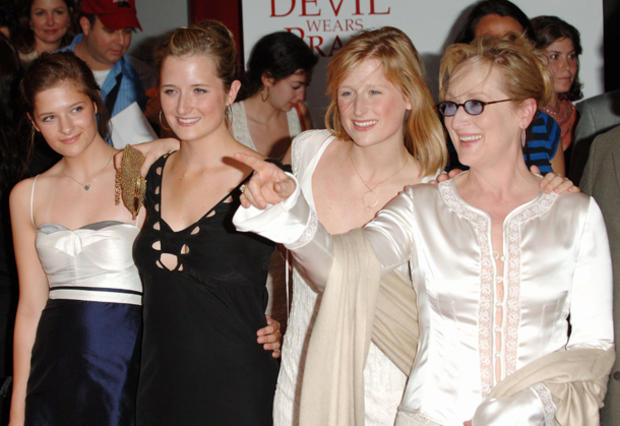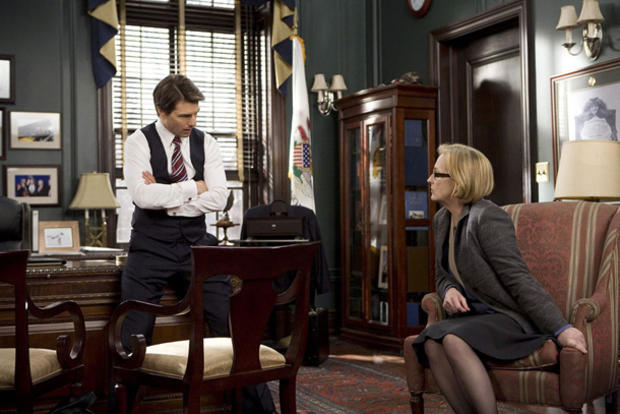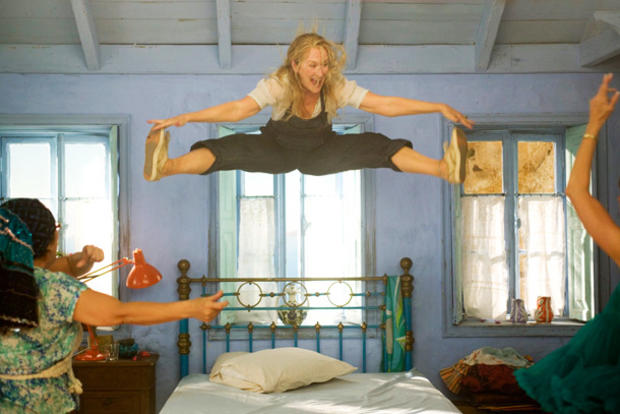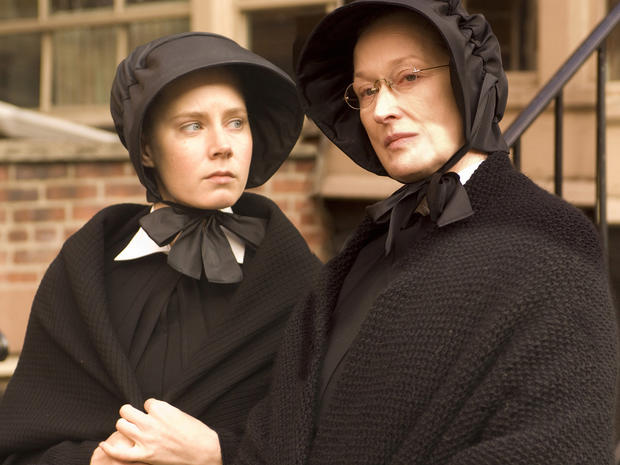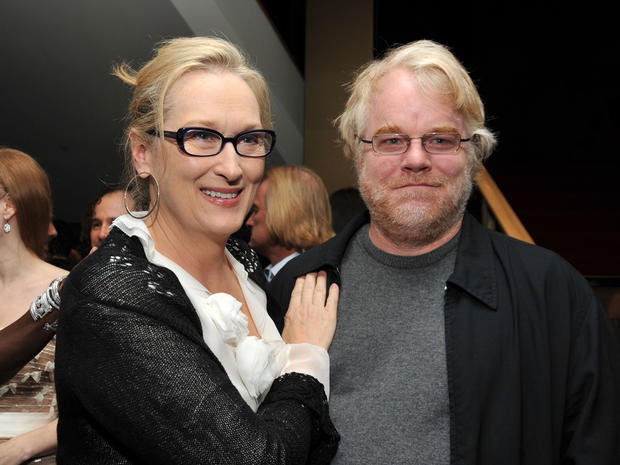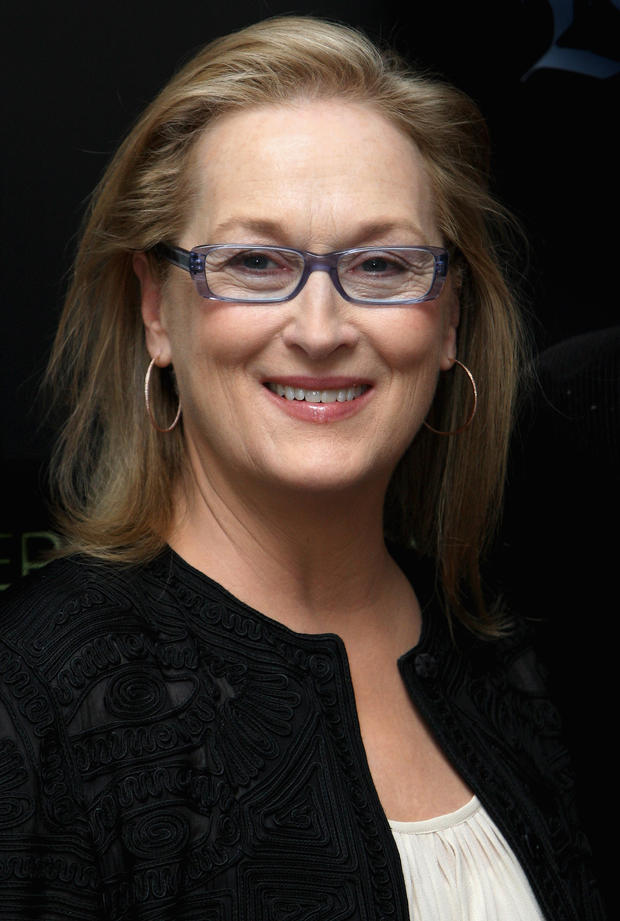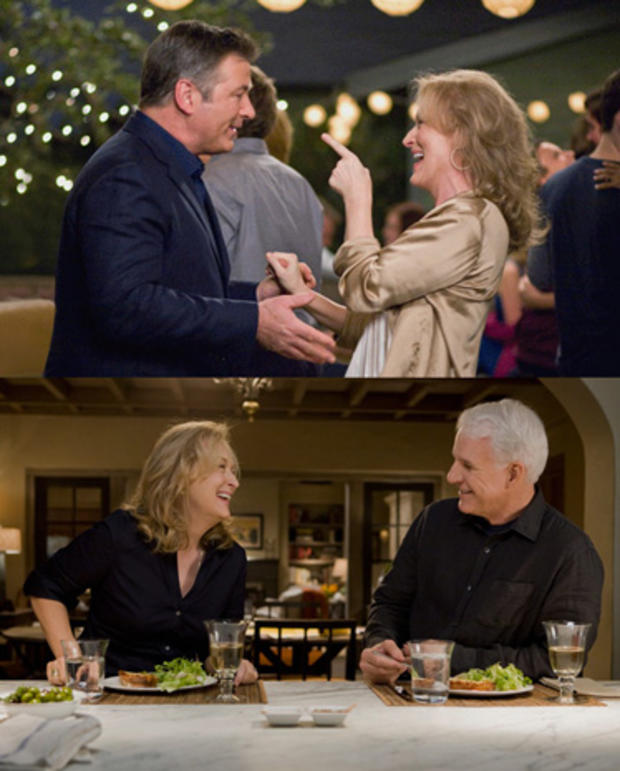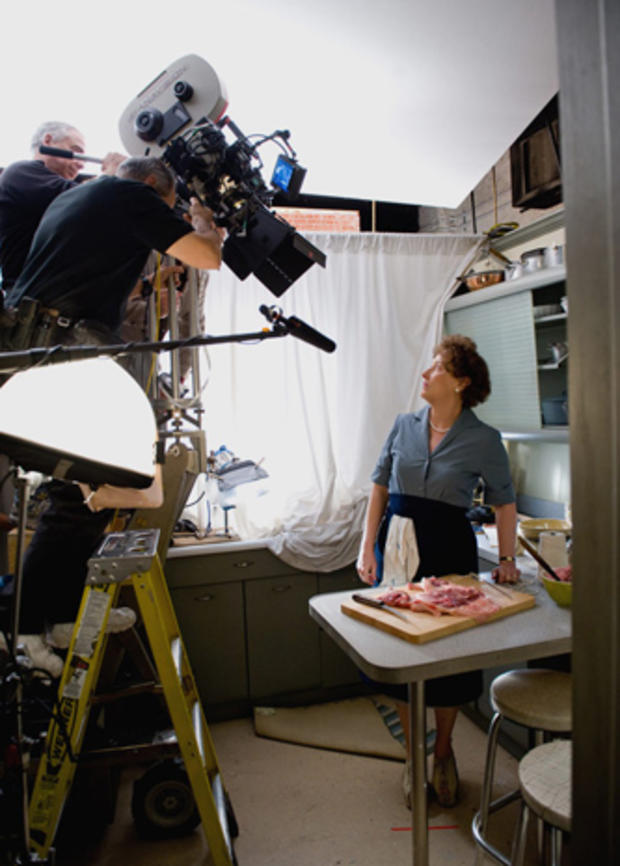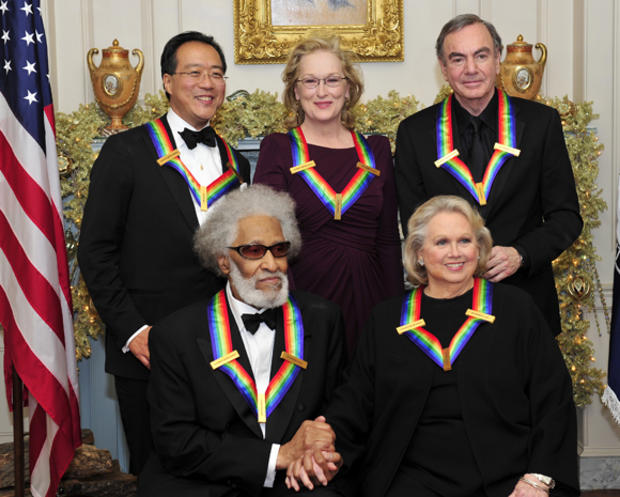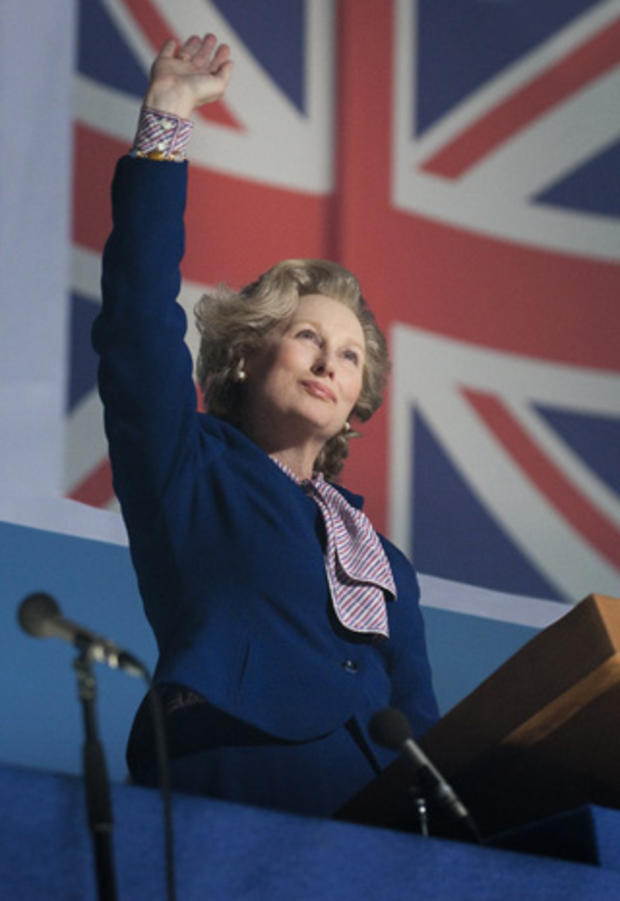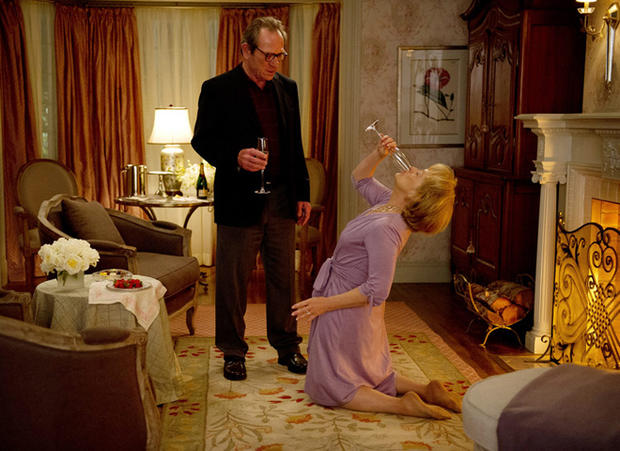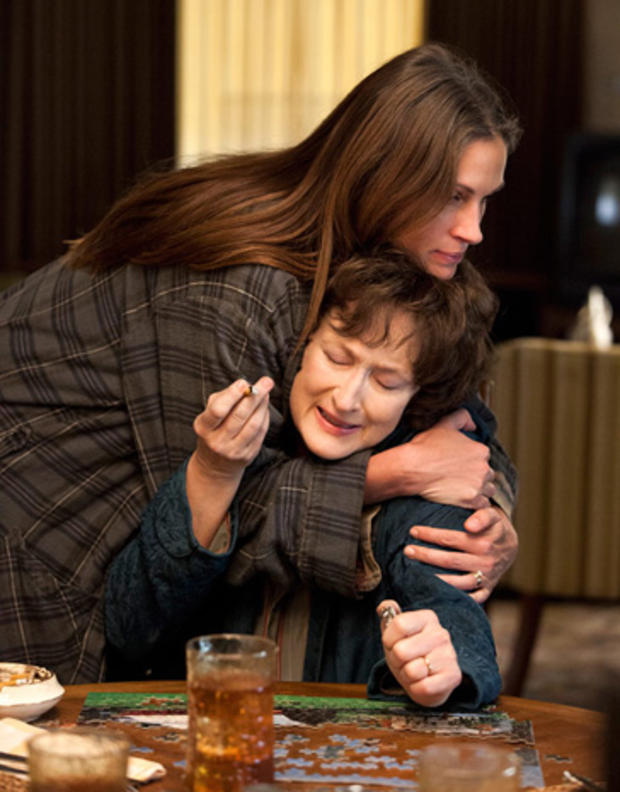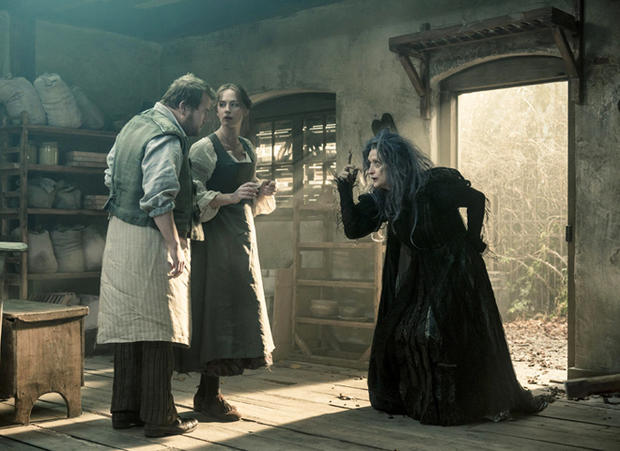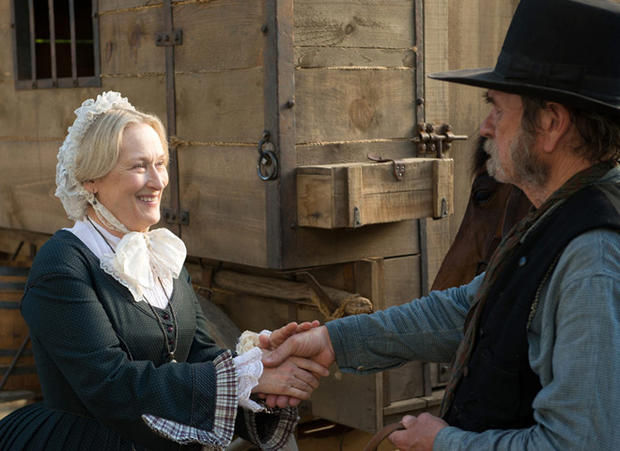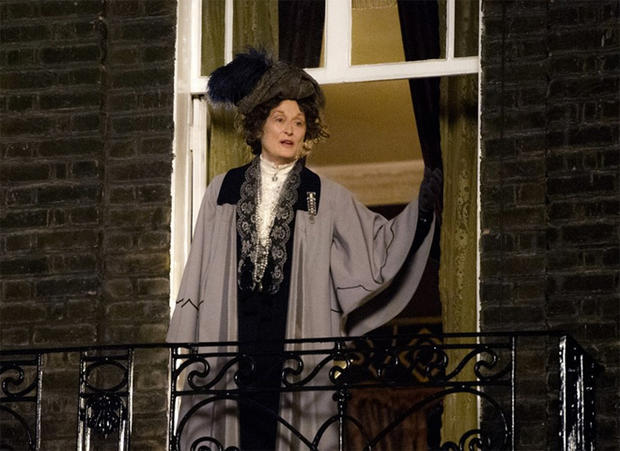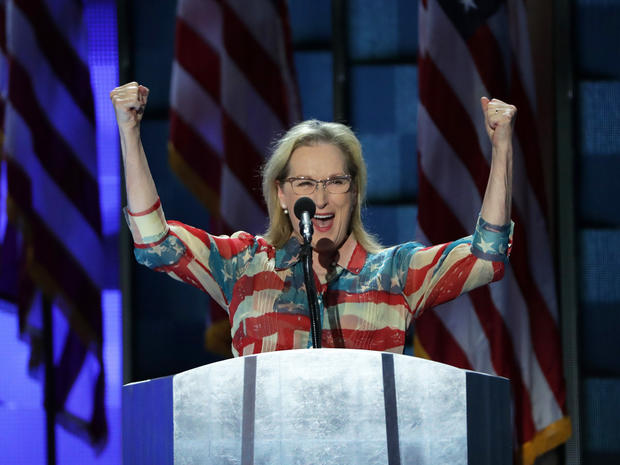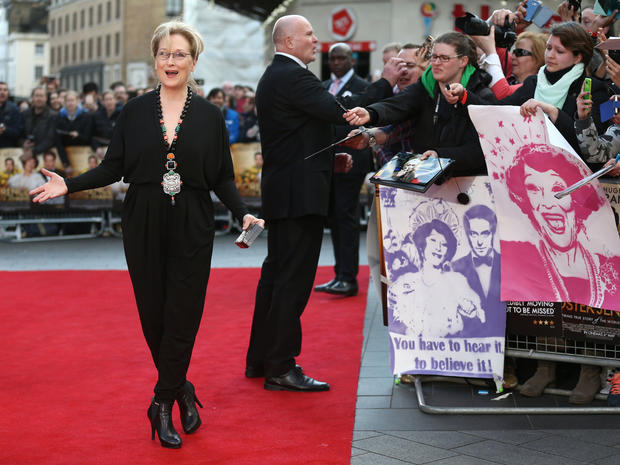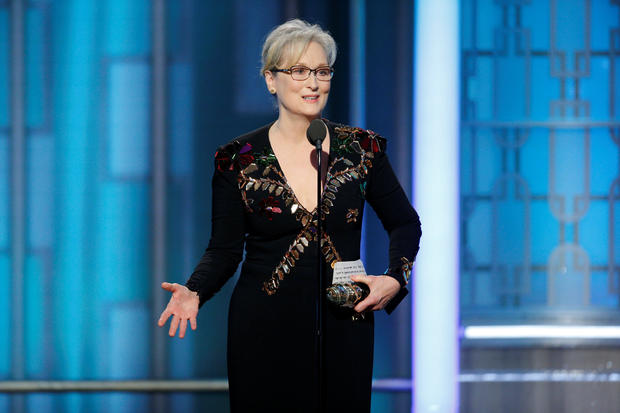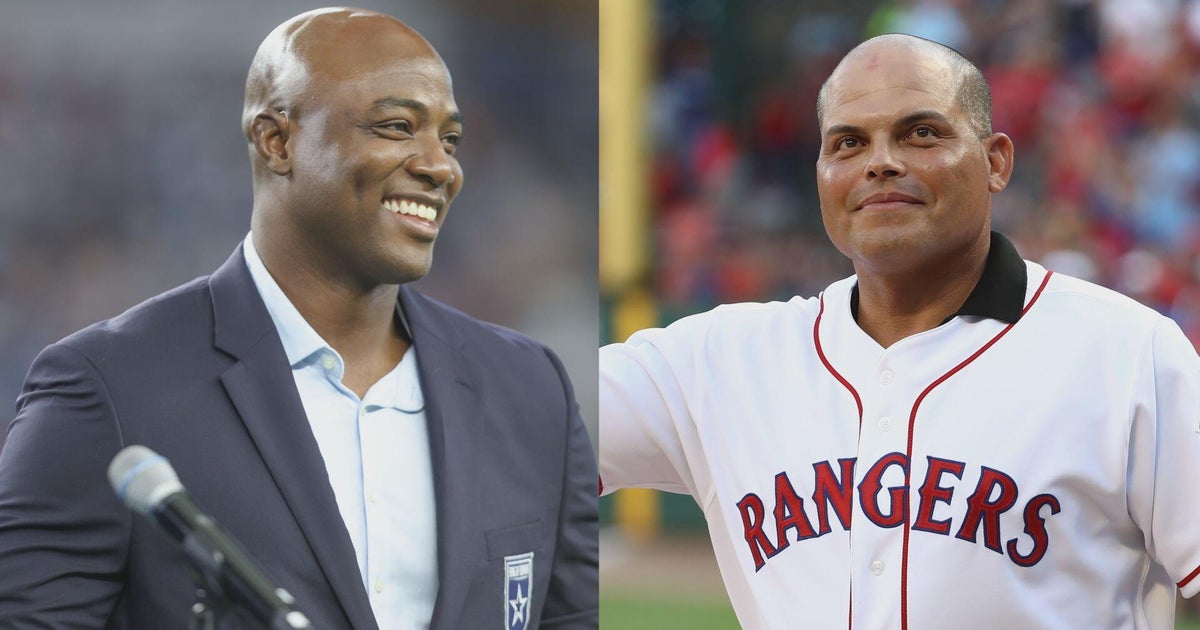Meryl Streep
One of the most gifted actresses in film history, with an ear for accents and a penchant for playing characters with incredible emotional depth, Meryl Streep has been honored with more Academy Award nominations (19) than any other actor. A three-time Oscar-winner (for "Kramer vs. Kramer," "Sophie's Choice" and "The Iron Lady"), Streep has deftly portrayed characters - politicians and whistleblowers, artists and creators, lovers and mothers - that offer unforgettable facets of our shared humanity.
Pictured: Streep as a former WWII resistance fighter in "Plenty" (1985), from David Hare's play.
By CBSNews.com senior producer David Morgan
"Florence Foster Jenkins"
In Streep's latest film, the musical biography "Florence Foster Jenkins," she plays the society woman celebrated for being the worst singer in the world, An extremely gifted singer, Streep had to match Jenkins' inability to land a note. CBS News' Anthony Mason asked the actress how hard it was to sing that badly.
"In studying how she sang," Streep replied, "it was not how bad she was, but how close she came to getting the note until the absolute last minutes, and then it would just, oh, fail miserably."
But audiences, she said, were glued to Jenkins' performances: "You were with her all the way. You thought, 'Oh, maybe this time it'll work! Maybe this time, I'll be lucky.'"
Yale Drama School
Born in Summit, New Jersey in 1949, Mary Louise Streep was a vivacious, cheerleading homecoming queen whose interest in acting, piqued at Vassar College, took her to Yale Drama School (pictured, in 1972).
"The Possessed"
Meryl Streep and Christopher Lloyd in the Yale Rep production of Dostoyevsky's "The Possessed," directed by Andrzej Wajda (1974).
By the following year she was performing at Joseph Papp's Public Theater in New York.
"Measure for Measure"
Meryl Streep costarred with her partner John Cazale in the 1976 New York Shakespeare Festival production of "Measure for Measure," at the Delacorte Theater in Central Park. The two would also appear together in "The Deer Hunter," Cazale's last performance, before he died of lung cancer in 1978.
"Happy End"
Meryl Streep starred with Tony Azito (left) and Christopher Lloyd in the Broadway production of "Happy End." The Kurt Weill-Bertolt Brecht-Elisabeth Hauptmann musical, which premiered in Berlin in 1929, did not have its New York premiere until 1977.
"Julia"
Meryl Streep made her film debut in the 1977 drama "Julia," about writer Lillian Hellman (Jane Fonda).
"The Deer Hunter"
In Michael Cimino's "The Deer Hunter" (1978), Streep played the girlfriend of one steel worker (Christopher Walken) and the object of attraction of another (Robert De Niro), both of whom were headed to fight in Vietnam.
It was the first of three films in which Streep acted with De Niro, and her first Oscar nomination, for Best Supporting Actress.
"The Seduction of Joe Tynan"
In "The Seduction of Joe Tynan" (1979), a married senator (Alan Alda) engages in a dangerous affair.
"Manhattan"
Meryl Streep played the ex-wife of Woody Allen, who left Allen for another woman and (gasp!) wrote a book about it in "Manhattan" (1979).
"Kramer vs. Kramer"
In "Kramer vs. Kramer" (1979), Meryl Streep played a woman who leaves her family in order to find herself in California, whose return leads to acrimonious divorce proceedings against her husband, played by Dustin Hoffman.
Academy Awards
Best Supporting Actress Oscar-winner Meryl Streep and Best Actor Oscar-winner Dustin Hoffman ("Kramer vs. Kramer") pose for photos at the 52nd annual Academy Awards in Los Angeles, Calif., on April 14, 1980.
"Alice in Concert"
Meryl Streep in the off-Broadway production of Elizabeth Swados' Lewis Carroll-inspired musical "Alice in Concert" (1980), at Joseph Papp's Public Theater in New York City.
"The French Lieutenant's Woman"
Meryl Streep photographed during production of Karel Reisz's film version of John Fowles' "The French Lieutenant's Woman" (1981). Harold Pinter's screenplay transformed the novel into two intersecting stories: A Victorian-era romance, and the drama of actors filming that same period romance. Streep won a Golden Globe for her performance, and received her first Best Actress Academy Award nomination.
"Sophie's Choice"
In "Sophie's Choice" (1982), directed by Alan Pakula from William Styron's novel, Meryl Streep played a Holocaust survivor and émigré to Brooklyn, who befriends an aspiring writer (Peter MacNicol).
"Sophie's Choice"
Peter MacNicol, Meryl Streep and Kevin Kline in "Sophie's Choice." Streep won her first Best Actress Academy Award for her performance.
"Still of the Night"
In the thriller "Still of the Night" (1982), by "Kramer vs. Kramer" director Robert Benton, a psychiatrist (Roy Schieder) falls for a woman (Meryl Streep) who may be responsible for the murder of a patient.
"Silkwood"
In Mike Nichols' real-life drama "Silkwood" (1983), Meryl Streep played Karen Silkwood, the Oklahoma plutonium plant employee who became a whistleblower - and a target of plant officials - after testifying about health hazards facing workers.
"Falling in Love"
Robert De Niro and Meryl Streep reunited in the 1984 romantic drama "Falling in Love," about two married commuters who discover a mutual attraction.
"Out of Africa"
In the autobiographical epic "Out of Africa" (1985), Meryl Streep starred as Danish novelist Karen Dinesen, who enters into marriage with the faithless Baron Blixen (Klaus Maria Brandauer).
"Out of Africa"
"Out of Africa" earned for Streep her sixth Academy Award nomination (and her third for Best Actress).
"Ironweed"
One of Streep's most challenging characters was Helen, an itinerate and terminally-ill alcoholic, who befriends fellow drunk Francis (Jack Nicholson) in "Ironweed" (1987).
"A Cry in the Dark"
In the 1988 true-life drama "A Cry in the Dark" (a.k.a. "Evil Angels"), Meryl Streep played Lindy Chamberlain, wife of a Seventh-day Adventist Church pastor (Sam Neill), who is tried and convicted for the murder of her infant daughter, whom she claimed had been taken by a wild dingo. It marked Streep's eighth Oscar nomination.
Cannes Film Festival
Actress Meryl Streep poses on the terrace of the Festival Palace during the Cannes Film Festival in Cannes, France, May 13, 1989.
"Postcards From the Edge"
In the comedy "Postcards From the Edge" (1990), directed by Mike Nichols and written by Carrie Fisher, Meryl Streep played an actress returning from rehab. (Academy Award nomination: #9).
"Defending Your Life"
In Albert Brooks' comic fantasy "Defending Your Life" (1991), Brooks played an ad man knocking on Heaven's door, who meets a woman (Meryl Streep) also undergoing the judgment process in the afterlife's waiting room.
"The River Wild"
In Curtis Hanson's thriller "The River Wild" (1994), Meryl Streep plays a woman on a white water rafting trip who encounters a pair of armed robbery suspects (including Kevin Bacon).
"The Bridges of Madison County"
In director Clint Eastwood's thoughtful filming of the bestselling potboiler novel "The Bridges of Madison County" (1995), adapted by screenwriter Richard LaGravenese, Meryl Streep played a lonely Iowa farm woman, an Italian war bride whose brief encounter with a traveling National Geographic photographer (Eastwood) spurs a passionate affair.
"Marvin's Room"
Meryl Streep and Leonardo DiCaprio in the 1996 family drama "Marvin's Room."
"One True Thing"
In "One True Thing" (1998), based on the book by Anna Quindlen, Renée Zellweger starred as a woman who returns home to care for her mother (Meryl Streep) who is dying of cancer.
"Music of the Heart"
Meryl Streep earned her 12th Oscar nomination playing Harlem music teacher Roberta Guaspari in Wes Craven's biopic "Music of the Heart" (1999).
SAG Awards
Actress Meryl Streep arrives at the 6th annual Screen Actors Guild Awards in Los Angeles March 12, 2000. Streep was a nominee for "Music of the Heart."
Tribeca Film Festival
Robert DeNiro, director Martin Scorsese and Meryl Streep attend the launch of the first annual Tribeca Film Festival December 6, 2001 in New York City.
Despite her long career and collaborations with some of the finest directors, Streep has yet to work with Scorsese.
"Adaptation"
In "Adaptation" (2002), Spike Jonze's meta-film version of Susan Orlean's "The Orchid Thief," Nicolas Cage played screenwriter Charlie Kaufman tasked with making a movie out of an unfilmable book. Streep, as Orlean, earned Oscar nomination #13.
"The Hours"
In "The Hours" (2002), an extrapolation of the writings of Virginia Woolf, Meryl Streep starred as a New Yorker caring for a former lover with AIDS.
"Angels in America"
In "Angels in America" (2003), an HBO miniseries based on Tony Kushner's two-part play, Meryl Streep played four roles, including the ghost of Ethel Rosenberg, who haunts a dying Roy Cohn (Al Pacino).
Academy Awards
Actor Peter O'Toole, star of "Lawrence of Arabia," "Becket" and "The Lion in Winter," accepts his Honorary Oscar presented by Meryl Streep during the 75th Academy Awards at the Kodak Theatre in Hollywood, California, March 23, 2003.
"The Manchurian Candidate"
In the 2004 remake of the thriller "The Manchurian Candidate," Meryl Streep played a U.S. senator and mother of a rising political star. She arouses the suspicions of an Army Major (Denzel Washington) whose investigations into what happened to his unit during the Gulf War point to a sinister plot.
"Prime"
In the comedy "Prime" (2005), Streep played a therapist who discovers her patient (Uma Thurman) is romantically entangled with her son.
"A Prairie Home Companion"
Robert Altman's "A Prairie Home Companion" (2006) offered a whimsical backstage look at Garrison Keillor's long-running radio show, with Meryl Streep and Lindsay Lohan singing backup.
AFI Lifetime Achievement Award
Actress Meryl Streep poses as she holds her American Film Institute Lifetime Achievement Award during a tribute gala held at the Kodak Theatre, June 10, 2004 in Hollywood, California.
"The Devil Wears Prada"
Meryl Starred as Miranda Priestly, the autocratic editor of a fashion magazine, opposite Anne Hathaway in "The Devil Wears Prada" (2006). It was Streep's 14th Oscar nomination - her 11th for Best Actress.
"The Devil Wears Prada"
Actress Meryl Streep attends the New York City premiere of "The Devil Wears Prada" at Loews Lincoln Center on June 19, 2006. In addition to a son, Henry, Streep has three daughters with her husband, sculptor Don Gummer: Louisa (far left), a model; and Grace and Mamie, both actresses.
"Lions for Lambs"
In "Lions for Lambs" (2007), directed by Robert Redford, Meryl Streep played a journalist who fears she is being played by a U.S. Senator (Tom Cruise) in promoting a new military strategy in Afghanistan.
"Mamma Mia!"
Meryl Streep became a dancing queen in the ABBA-inspired 2008 romantic musical comedy "Mamma Mia!," in which she played a woman whose daughter seeks to discover which of mom's long-ago lovers is her dad.
"Doubt"
Amy Adams and Meryl Streep in "Doubt" (2008), adapted from John Patrick Shanley's Pultizer Prize-winning play, about a Bronx nun (Streep) who suspects that her parish priest is guilty of sexual acts with a child.
"Doubt"
Meryl Streep and Philip Seymour Hoffman attend a "Doubt" screening after-party at the Academy of Motion Picture Arts and Sciences on November 18, 2008 in Beverly Hills, Calif. Streep, Hoffman, Amy Adams and Viola Davis each received acting nominations.
Portrait
Actress Meryl Streep poses for a portrait at the Claridges Hotel in London, January 16, 2009.
"Fantastic Mr. Fox"
Meryl Streep provided the voice of Mrs. Fox, the title character's sensible wife with a passion for painting lightning strikes, in Wes Anderson's stop-motion animated film of the Roald Dahl story, "Fantastic Mr. Fox."
"It's Complicated"
In Nancy Meyer's 2009 romantic comedy "It's Complicated," Meryl Streep played a divorcee who revives her relationship with her ex (Alec Baldwin) at the same time she starts a dalliance with another paramour (Steve Martin).
"Julie & Julia"
Meryl Streep, as cookbook author and TV chef Julia Child, during filming of the 2009 "Julie & Julia."
Kennedy Center Honorees
The 2011 Kennedy Center Honorees: Rear, from left: musician Yo-Yo Ma, actress Meryl Streep, and singer Neil Diamond. Front, from left: musician Sonny Rollins and singer Barbara Cook. Photographed at a Department of State reception, December 3, 2011 in Washington, D.C.
"The Iron Lady"
Meryl Streep received her 17th Oscar nomination - and won her third Academy Award - for her portrayal of British Prime Minister Margaret Thatcher in the political biopic, "The Iron Lady." Her longtime makeup artist, J. Roy Helland, also shared a Best Makeup Oscar.
In 2011 Streep told Morley Safer of "60 Minutes" that she was in awe of Thatcher despite her politics: "The policies you can argue with, but to sit in that hot seat ... I can't even imagine having that steadfastness."
Reminded by Safer that the former prime minister was self-assured and confident that her way was the right way, Streep replied, "Oh yes, I have a lot of that." So was playing Thatcher typecasting? "A little bit!"
"Hope Springs"
Hoping to reignite the flames of passion with her dullard husband Tommy Lee Jones, Meryl Streep takes some liquid courage while visiting a seaside inn, in the romantic comedy "Hope Springs" (2012).
"August: Osage County"
Meryl Streep, as the dysfunctional matriarch of a truly dysfunctional Oklahoma family, clashes with daughter Julia Roberts in the film version of Tracy Letts' Pulitzer-winning drama, "August: Osage County" (2013).
In 2012 Morley Safer of "60 Minutes" asked Streep how real a character feels to her when she's performing.
"I mean, I'm not insane -- I do know that I'm acting. But you forget about it," she replied. "When you're doing it right, there's a thrilling suspension of the day-to-day, and you're in someone else's head."
"Into the Woods"
Meryl Streep picked up Oscar nomination #19 for her performance as the Witch in Stephen Sondheim's musical-fantasy "Into the Woods" (2014). With James Corden and her "Devil Wears Prada" costar Emily Blunt.
Blunt and Streep are due to appear on-screen together again in the musical "Mary Poppins Returns."
"The Homesman"
In the 2014 western "The Homesman," Tommy Lee Jones is hired to accompany a group of women across dangerous territory to the care of his "Hope Springs" costar Meryl Streep.
"Ricki and the Flash"
In "Ricki and the Flash" (2015), Meryl Streep plays a woman who abandoned her family to pursue the life of a rock and roll musician. With Rick Springfield.
Streep played alongside her daughter, Mamie Gummer, whose character, (Ricki's daughter, Julie) lashes out at her on more than one occasion. Streep told "CBS This Morning" her experience while filming was "very weird ... When I looked at her on set, I really saw Julie, I really did. But that was partly because I didn't feel like Meryl Streep from New Jersey. You know, I felt like Ricki."
According to Streep, it was due to Gummer's believable performance. "It's only actors who are weaker or insecure or worried that show you their anxiety about working with you. My daughter has no fear of Meryl Streep - like, none!"
"Suffragette"
In the 2015 period drama "Suffragette," Meryl Streep appeared as activist Emmeline Pankhurst, who led the early 20th century movement in Britain to win women the right to vote.
Democratic National Convention
Meryl Streep cheers as she spoke in support of Democratic presidential nominee Hillary Clinton at the Democratic National Convention in Philadelphia, July 26, 2016. Streep - the first actor to earn 19 Oscar nominations - spoke of Clinton's historic nomination, "What does it take to be the first female anything? It takes grit. And it takes grace."
"Florence Foster Jenkins"
Meryl Streep arrives for the premiere of "Florence Foster Jenkins" in London on April 12, 2016.
Golden Globes
On January 8, 2016, as she was accepting the Hollywood Foreign Press Association’s Lifetime Achievement Award, Streep spoke against President-elect Donald Trump, though without mentioning his name:
“An actor’s only job is to enter the lives of people who are different from us and let you feel what that feels like. And there were many, many, many powerful performances this year that did exactly that - breathtaking, passionate work.
“But there was one performance this year that stunned me. It sank its hooks in my heart. Not because it was good; there was nothing good about it. But it was effective, and it did its job. It made its intended audience laugh and show their teeth. It was that moment when the person asking to sit in the most respected seat in our country imitated a disabled reporter, someone he outranked in privilege, power and the capacity to fight back. It kind of broke my heart when I saw it. And I still can’t get it out of my head because it wasn’t in a movie. It was real life.
“This instinct to humiliate, when it’s modeled by someone in the public platform, by someone powerful, it filters down into everybody’s life, because it kind of gives permission for other people to do the same thing. Disrespect invites disrespect. Violence incites violence. When the powerful use their position to bully others, we all lose.”
Portrait
An undated photo of Meryl Streep.
